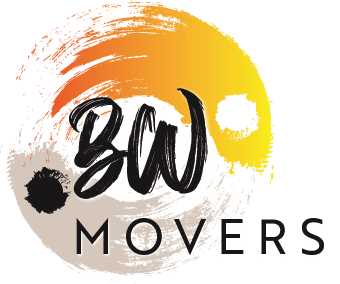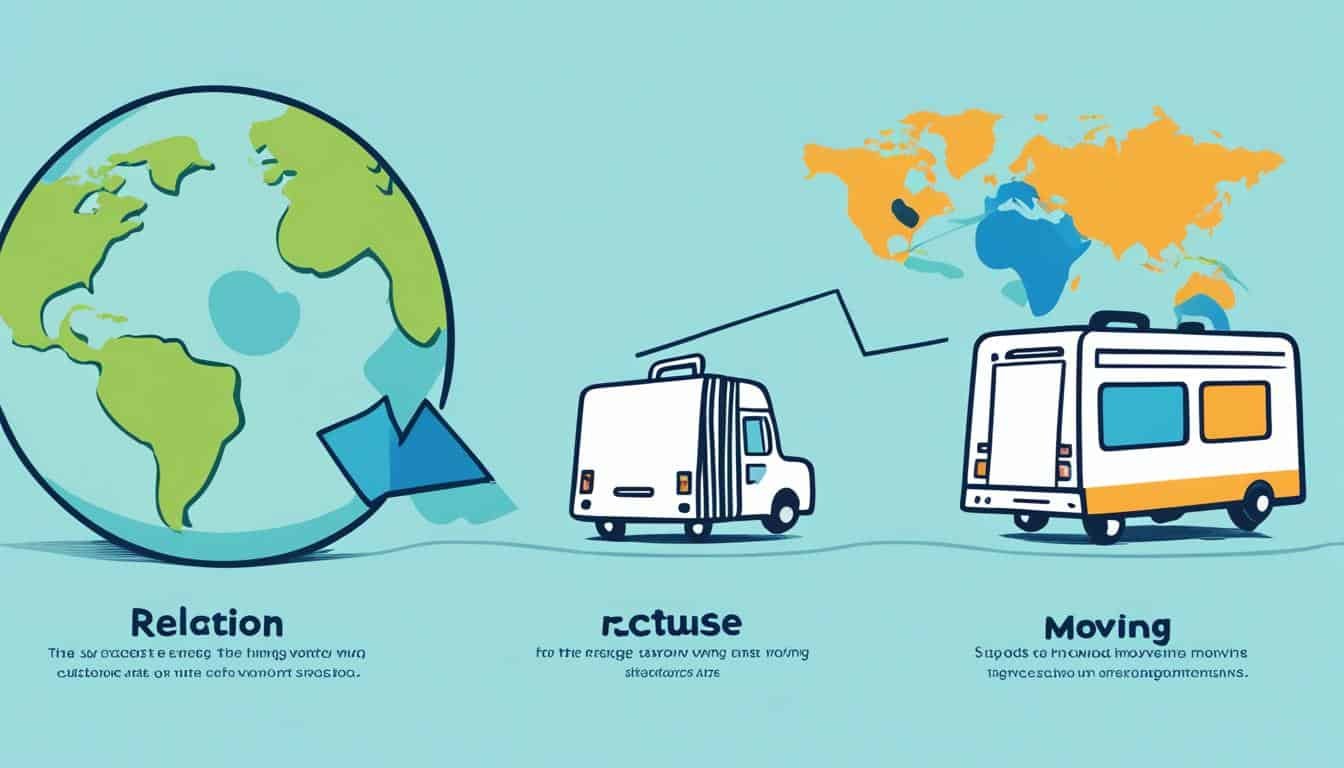When it comes to relocation vs moving, many individuals in South Africa may find the terms used interchangeably. Yet, there’s a clear distinction to be made. What is the difference between relocation and moving? Perhaps you’re contemplating a job opportunity that requires a significant move, or you’re simply planning to change residences; understanding the nuanced key differences between relocation and moving is essential. Whether you are considering moving versus relocation, or exploring relocation compared to moving, each term encompasses unique services and experiences – from the practical tasks to the emotional journey.
As the industry evolves, the line between removals companies and relocation vs moving services blurs, with many now branding themselves as full-service relocation experts. This sector’s growth highlights the expansive support systems designed for individuals and families embarking on new chapters, surpassing mere physical transitions to include emotional and integration assistance.
Key Takeaways
- Understanding what is the difference between relocation and moving is critical for anyone facing a geographic transition.
- Relocation or moving – each follows a different set of services tailored to the needs of the individual or family.
- Removals companies now operate under the banner of relocation services to signify an expanded service offering.
- The distinction between relocation and moving reflects the industry’s shift towards a more holistic approach.
- Relocation industry’s focus on empathetic support helps not just to move belongings but also to adapt to a new lifestyle and culture.
- The inclusive perspective highlights why understanding relocation compared to moving is more than just semantics – it’s about the depth of the service.
Understanding the Basics: Relocation and Moving Defined
As the global workforce continues to evolve, the need for clarity in the dynamic field of global mobility becomes crucial. We no longer simply transport belongings; we facilitate a seamless transition into new lives across borders. This transition is impacted significantly by relocation and moving services—terms that are often used interchangeably but differ substantially in scope and execution.
What is a Relocation?
A relocation is an intricate process, typically employment-driven, that spans beyond mere logistics to encompass the comprehensive adaptation to a new environment, culture, and community. It places prominence on the continuity of personal and family life amidst significant geographical shifts.
Distinguishing Moving Services
When it comes to distinguishing moving services, the marketplace presents a vast array of options. However, traditional moving services mainly concentrate on the physical movement of items from one location to another; they are the cogs in the wheel of transition, whereas relocation services strive to be the entire vehicle.
The Role of Destination Service Providers (DSPs)
Destination Service Providers (DSPs), such as Inter Relocation, epitomize the broader spectrum of assistance that defines relocation. DSPs guide individuals and families through the labyrinth of settling into their new host country with a suite of tailored services designed to ease the emotional, administrative, and logistical burdens.
Relocation Management Companies (RMCs) Overview
Standing at the helm of orchestrating international moves are Relocation Management Companies (RMCs). These entities facilitate a cohesive and consistent relocating experience, coordinating various services across global and local platforms, a partnership which includes close collaborations with DSPs to ensure every nuanced aspect of the relocation process is managed with precision and personal attention.
Relocation is compared to moving, but with an extent that reaches beyond the horizon. This isn’t merely a move; it’s a life transition supported by a sophisticated framework designed to handle the multitude of challenges and opportunities that accompany such significant life events.
| Service | Moving Company | DSP | RMC |
|---|---|---|---|
| Transport of Goods | Yes | Yes | Yes |
| Housing Assistance | No | Yes | Yes |
| School Search | No | Yes | Yes |
| Visa/Immigration Support | No | Yes | Yes |
| Cultural Integration | No | Yes | Yes |
| Global Mobility Consultation | No | Partial | Yes |
What is the difference between relocation and moving?
In discussing the distinction between relocation and moving, it’s evident that the two are not interchangeable. Moving typically signifies the process of transporting belongings; imagine the simple scenario of shifting furniture to a new residence, possibly across city lines or back to a place as familiar as England. This logistical maneuver is a mere slice of the comprehensive pie that is relocation. Relocation represents a more expansive support system designed to assist individuals and families in not just moving house, but truly embedding themselves into the fabric of a new cultural and geographic landscape. The impacts of relocation encompass a myriad of factors, including finding new schools for children, establishing new social networks, and adapting to a different way of life. Relocation services often include assistance with finding employment, navigating immigration and visa processes, and providing cultural orientation programs. By acknowledging the significant impacts of relocation, it becomes clear that the term encompasses far more than the mere act of moving belongings from one place to another.
Delving into deeper intricacies, when we compare relocation and moving, we observe that relocation services provide a breadth of personalized aid. This includes, but is not limited to, the facilitation of home searches, orientation in unfamiliar locales, and managing the intricate legal documentation necessary for establishing one’s residential and occupational life abroad. This multifaceted approach is championed by Destination Service Providers (DSPs) and Immigration Service Providers (ISPs), who ensure that every aspect of transition is as seamless as possible. Furthermore, the emergence of Relocation Management Companies (RMCs) has created a domain where global mobility for employees is managed under a comprehensive service umbrella, maintaining personal welfare and connection throughout the course of the relocation journey.
The moving versus relocation discussion essentially boils down to the all-encompassing nature of relocation services—they strive to alleviate transition stress and elevate the overall experience of assimilating into a new environment. This contrasts with moving services, which are primarily concerned with the physical transfer of items. Recognizing this difference between relocation and moving is vital for those embarking on a global move, ensuring they procure the appropriate level of service for their specific needs. Whether it’s opting for basic moving assistance or engaging comprehensive relocation services, individuals are empowered to make decisions that best pave the path to their new life chapter.
What is the difference between relocation and moving?
What is a Relocation?
Relocation is a comprehensive service that assists individuals or families with not only moving their belongings but also with settling into a new location. This includes finding housing, schools for children, and helping with integration into a new community, as well as handling necessary legal paperwork such as visa and immigration services.
Distinguishing Moving Services
Moving services primarily deal with the physical aspects of transferring items from one location to another. This involves the logistical coordination of packing, loading, transporting, and unloading personal belongings. These services are often focused on the movement of goods rather than the full spectrum of settling into a new place.
The Role of Destination Service Providers (DSPs)
Destination Service Providers play a crucial role in the relocation process by offering personalized and extended services beyond moving. These include helping with housing and school searches, local orientation, cultural training, and support with legal documentation for working and living in a new country.
Relocation Management Companies (RMCs) Overview
Relocation Management Companies specialize in managing the entire process of employee relocation for corporations. They provide an array of services through partnerships with local and global service providers, handling relocation logistics, DSP services, and ensuring a consistent relocation experience for employees moving domestically or internationally.
Relocation and moving compared – what’s the principal distinction?
The principal distinction between relocation and moving is the scope and depth of services. Relocation encompasses the complete process of moving as well as helping an individual or family adapt to a new life in a different location. This includes personalized support for various aspects of settling in, such as finding housing and schools, understanding local customs, and legal assistance. Moving, in contrast, refers mainly to the logistical task of transporting personal belongings from one place to another.
What services do relocation vs moving companies offer?
Relocation companies offer a wide range of services that cater to the needs of individuals moving to a new area for personal or professional reasons. These services may include area orientation, home and school searches, cross-cultural training, and assistance with immigration and legal paperwork. Moving companies, on the other hand, focus on the logistics of physically transporting items from one location to another.
Can a company that offers moving services also provide relocation services?
Yes, some companies that began as traditional moving services have broadened their offerings to include relocation services. This expansion allows them to cater to a wider array of client needs, such as housing assistance, cultural integration, and visa services, to provide a more holistic support system for people in the process of relocating.
Why might someone choose a Relocation Management Company (RMC) over traditional moving services?
Someone may choose an RMC over traditional moving services when they require comprehensive support that goes beyond moving their belongings. RMCs offer a complete package of services tailored to meet the individual needs of clients during their relocation. They handle the complexities associated with international assignments, employee transfers, and providing a seamless transition for individuals and families into new roles and environments domestically and globally.
What is the role of immigration service providers (ISPs) in relocation?
Immigration Service Providers (ISPs) specialize in the legal aspects of relocating to a new country. They provide services related to visa applications, work permits, and compliance with local immigration laws. While ISPs can operate independently, they often work in conjunction with relocation companies to ensure a smooth transition for clients who are moving internationally.





